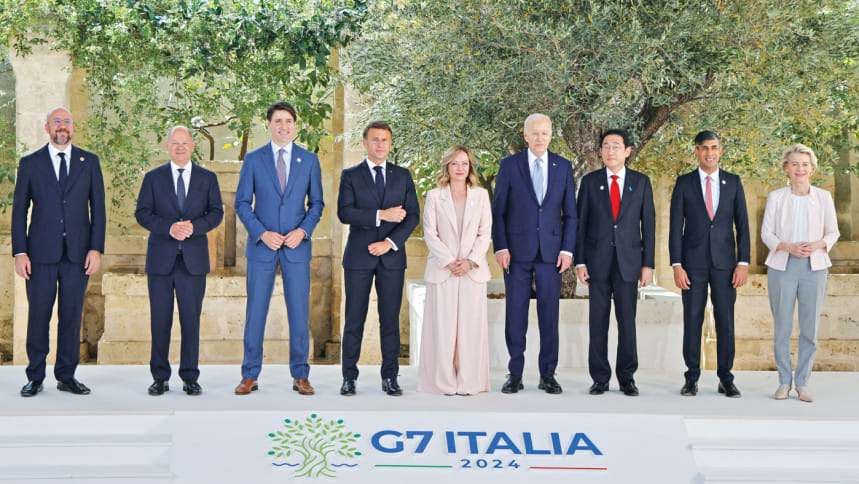Ukraine support plan G7 leaders agree $50bn deal
Leaders of the Group of Seven (G7) major democracies yesterday agreed an outline deal to provide $50 billion of loans for Ukraine using interest from Russian sovereign assets frozen after Moscow launched its invasion of its neighbour in 2022.
The political agreement was the centrepiece of the opening day in southern Italy of the annual summit of G7 leaders, attended for a second successive year by Ukraine’s President Volodymyr Zelensky.
The Ukrainian leader was scheduled to sign a new, long-term security accord with US President Joe Biden later yesterday, as well as one with fellow G7 member Japan.
Many of the G7 leaders are struggling at home but determined to make a difference on the world stage as they also seek to counter China’s economic ambitions.
“There is a lot of work to be done, but I am sure that in these two days we will be able to have discussions that will lead to concrete and measurable results,” Italian Prime Minister Giorgia Meloni told her G7 guests as their talks started in a luxury hotel resort in the southern region of Puglia.
The G7 plan for Ukraine is based on a multi-year loan using profits from some $300 billion of impounded Russian funds.

The technical details will be finalised in the coming weeks, a G7 diplomatic source told Reuters. The source, who asked not to be named, said the additional funding would arrive by the end of this year.
A senior US official said the United States had agreed to provide up to $50 billion itself, but that amount could decline significantly as other countries announced their participation.
The aim of the deal was to ensure it can run for years regardless of who is in power in each G7 state – a nod to concerns that US Republican presidential candidate Donald Trump might be much less sympathetic to Kyiv if he beats Biden in November, according to a person close to the talks.
While Meloni is flying high after triumphing in weekend European elections, the leaders of the other six nations – the United States, Japan, France, Germany, Britain and Canada – face major domestic woes that risk undermining their authority.
LondonGBDESK//



Comments are closed.